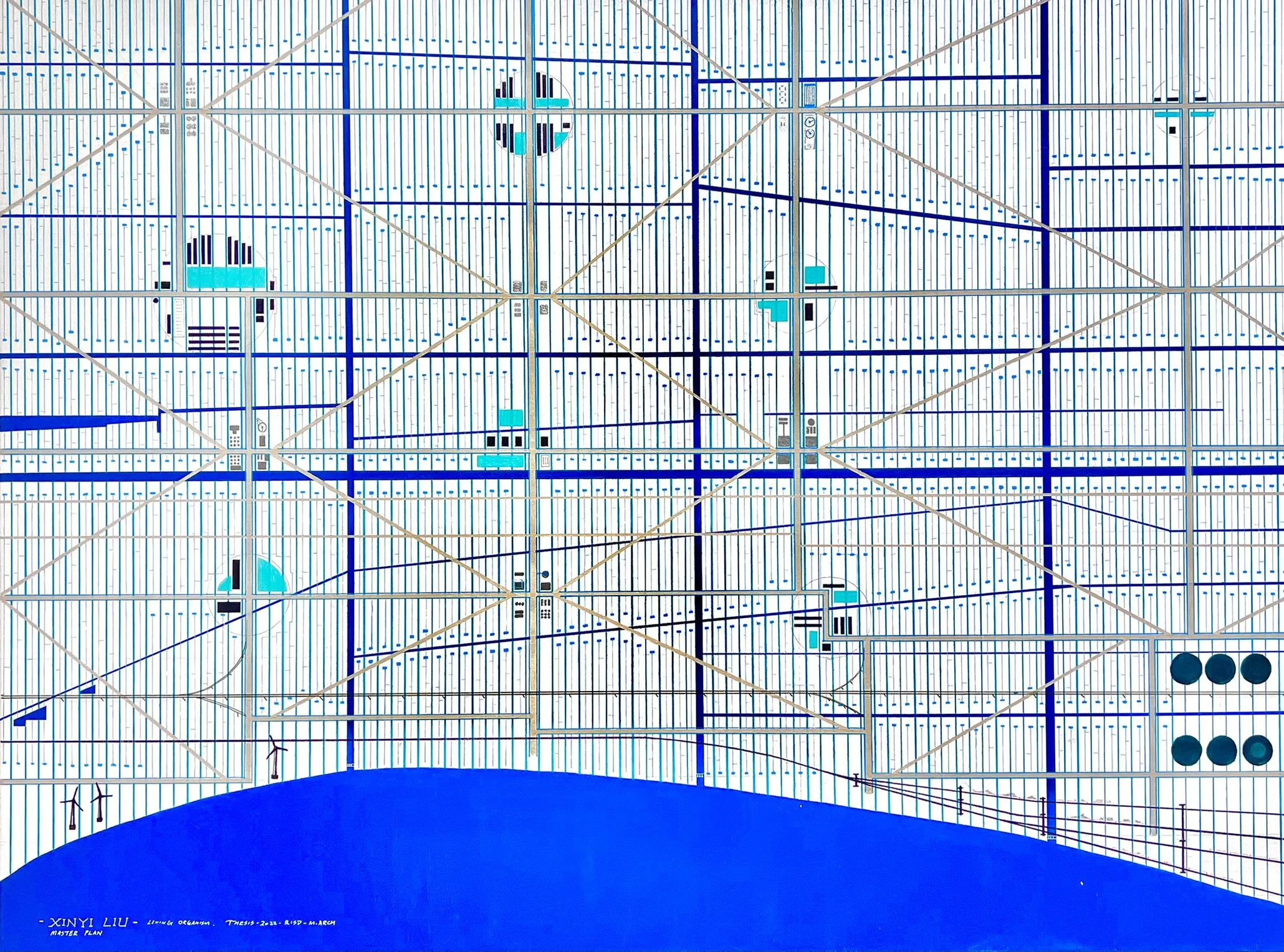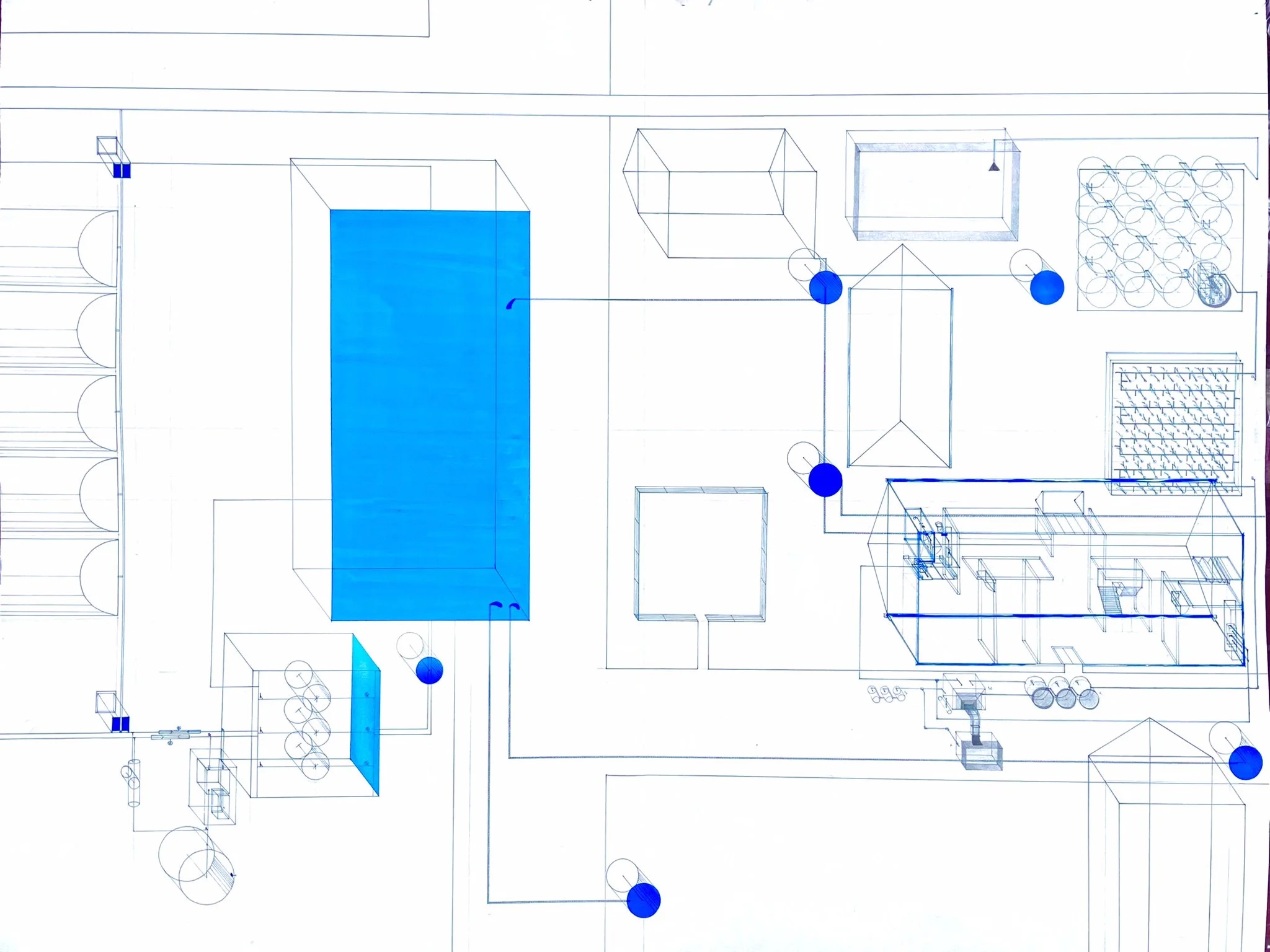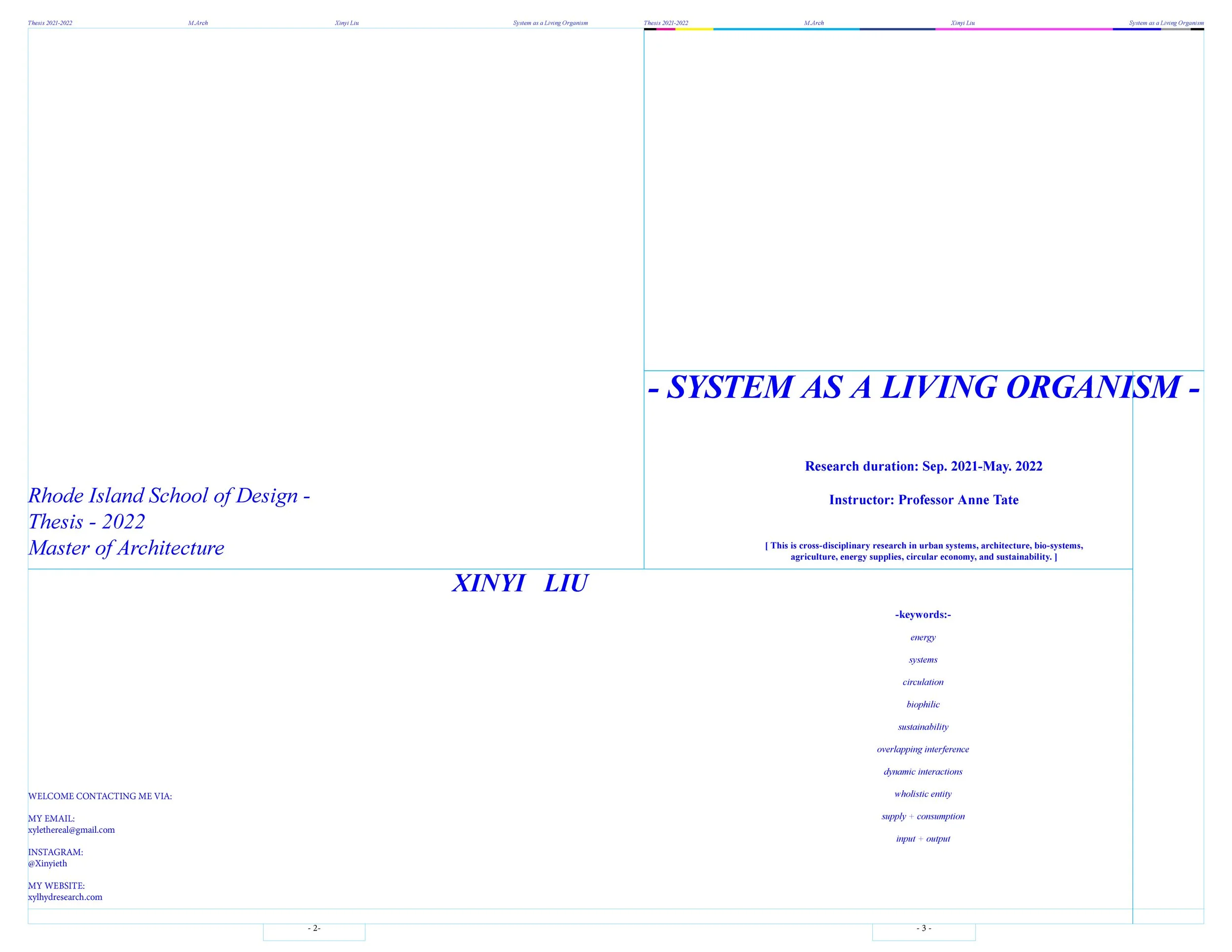“System As a Living Organism”
Thesis _ Xinyi Liu _ M.Arch _ Rhode Island School of Design - 2022
Sep. 2021 - May. 2022
Instructor: Professor Anne Tate
[This is cross-disciplinary research on sustainability, ecology, water recycling, civil engineering, urban planning, biomimicry, architecture, agriculture, energy management, and circular economy. ]
Keywords:
sustainability
energy
systems
circulation
biophilic
water recycling
overlapping interference
dynamic interactions
holistic entity
supply + consumption
input + output
_ Please scroll down to read the research introduction and related graphics _
__________________________________________________________________________________________________________________________________________
Research Outline
- “System as a Living Organism” -
It's easy to associate a city with physical elements, such as infrastructure, utilities, and materials. But what if one interprets it as a living being with life? Starting from a counterintuitive perspective, it’s possible to categorize a city into any new group.
The key idea of my research is to examine and propose the future sustainable city as a living organism rather than a rational outcome of modern construction. I believe climate change exceeds the bearing limits of a city's current configurations and structural design features because people often design urban areas as lifeless, subjectively. Questions about what life is and what distinguishes living and non-living beings will be discussed in depth. Essential principles that sustain the successful operation of an organic entity have tremendous potential for application in the design of future urban systems. It’s critical to redefine the relationship between human beings and nature within a structure that is not homogeneously dependent, but rather one that is based on a hierarchy.
I hypothesize that if we consider a city as a creature like human beings or at least part of us, things will be different. This means that the urban system should be redesigned as a holistic entity, with all subsystems acting in harmony, much like an orchestra, rather than addressing sustainable issues by fixing the flaws of independent parts. Our perspective should shift from urban to organic matters to find a better and even perfect operation model as an example of such an entity. A matter of attitude, not intelligence, will lead us to a new verge of ecological evolution. Although the definition of life remains debatable in today's scientific research, it’s possible to conduct experiments based on many inspiring features found in nature. Such elements can include adaptability, flexibility, resilience, and symbiosis, which sustain life at both macro and micro levels. The referential sources for improving the future urban systems could derive from both the biosphere and the ecosphere. For instance, the reactive mechanism in the behavior of various protein types can be further studied. Likewise, these concepts in protein behaviors can be compared to the urban contexts, especially regarding waste recycling, junk collections, material ecology, and digitalized urban data management. These principles can also be applied to enhance the future urban environment by developing more efficient traffic networks, neighborhoods, and services. Other examples include bacteria, algae, and leaf cells, among others. The focus is not on designing a structure that looks like algae or layers of leaf structures. Instead, the goal is to improve the future living environment for human beings and the whole planet.
As the era of artificial intelligence approaches, our research attention should not be limited to the technosphere but should incorporate considerations of influencing factors in socio-political, economic, and ecological aspects. The final solution to design a greener city is yet to be discovered, and it’s not a short-term process. However, I hope that my proposal will make a difference, for the wisdom of nature is infinite.








